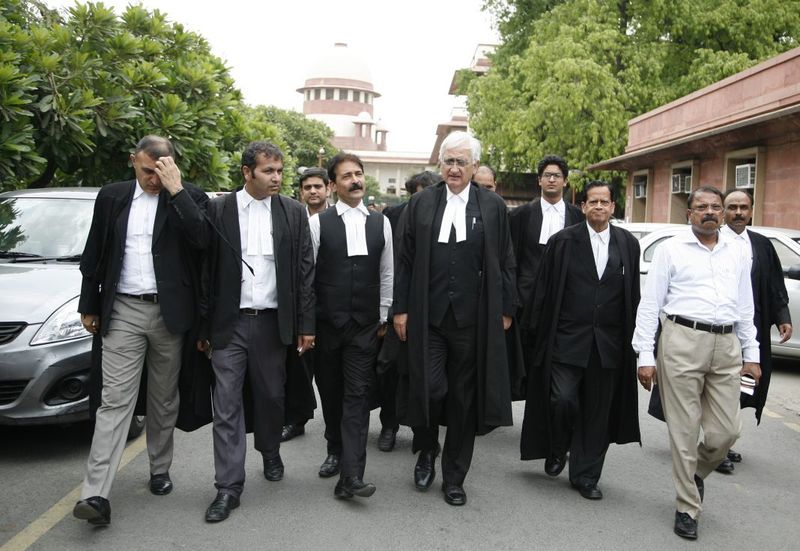The Lawyer in Supreme Court of India holds a position of utmost importance in the country’s judicial system, and the lawyers practicing there play a crucial role in upholding justice. Being a lawyer in the Supreme Court requires extensive knowledge, expertise, and dedication to the pursuit of justice. In this article, we will explore the responsibilities of a lawyer in the Supreme Court of India, the steps to becoming one, the challenges they face, and the skills required for success.
Table of Contents
- 1 Understanding the Supreme Court of India
- 2 Responsibilities of a Lawyer in the Supreme Court
- 3 Qualifications and Skills Required
- 4 Steps to Becoming a Supreme Court Lawyer
- 5 Challenges Faced by Supreme Court Lawyers
- 6 Key Skills for Success as a Supreme Court Lawyer
- 7 Career Prospects and Opportunities
- 8 FAQs
Understanding the Supreme Court of India
The Supreme Court of India is the highest judicial body in the country. It serves as the final court of appeal and exercises jurisdiction over both civil and criminal matters. The decisions made by the Supreme Court are binding on all lower courts, thereby setting important legal precedents. The court comprises a Chief Justice and a fixed number of judges, determined by Parliament.
Responsibilities of a Lawyer in the Supreme Court
Lawyers in the Supreme Court have the responsibility of presenting their clients’ cases before the court, advocating for their rights, and providing legal opinions. They play a crucial role in shaping legal arguments, conducting research, and presenting compelling evidence to support their clients’ positions. Additionally, they may draft legal documents, including petitions, appeals, and briefs, to be submitted to the court.
Qualifications and Skills Required
Becoming a lawyer in the Supreme Court of India requires a strong educational foundation and certain skills. To be eligible, one must have completed a law degree from a recognized university and be enrolled as an advocate with a State Bar Council. Moreover, exceptional research, analytical, and communication skills are vital for effectively presenting legal arguments and navigating complex cases.
Steps to Becoming a Supreme Court Lawyer
Completing a Law Degree
The first step towards becoming a Supreme Court lawyer is obtaining a law degree. Aspiring lawyers need to pursue a Bachelor of Laws (LLB) program from a recognized university or institution. This degree equips them with the foundational legal knowledge necessary for further specialization and practice.
Gaining Experience in Lower Courts
After completing their law degree, aspiring Supreme Court lawyers often gain practical experience by practicing in lower courts. This experience allows them to develop a deeper understanding of legal procedures, courtroom dynamics, and case management. By handling a variety of cases, lawyers can refine their skills and build a strong foundation for future practice in the Supreme Court.
Clearing the Bar Council Exam
To practice law in India, lawyers must clear the Bar Council Exam conducted by the Bar Council of India. This exam assesses their knowledge of various legal subjects, including constitutional law, criminal law, and civil procedure. Clearing this exam is a crucial requirement for enrollment as an advocate and for appearing in the Supreme Court.
Applying for Enrollment in the Supreme Court
Once lawyers have obtained the necessary qualifications and cleared the Bar Council Exam, they can apply for enrollment with the Supreme Court Bar Association or the Supreme Court Advocates-on-Record Association. This step allows them to practice law in the Supreme Court and represent clients in cases that come before the court.
Challenges Faced by Supreme Court Lawyers
Practicing law in the Supreme Court presents unique challenges that lawyers must navigate. These challenges include:
High Workload and Pressure
Supreme Court lawyers often face a demanding workload due to the significance and complexity of the cases they handle. The court deals with a wide range of legal matters, including constitutional issues, public interest cases, and high-profile disputes. This places immense pressure on lawyers to thoroughly research, prepare, and present their cases effectively.
Complex Legal Cases
The Supreme Court deals with intricate legal issues that require in-depth analysis and interpretation of laws, precedents, and constitutional provisions. Lawyers must possess strong analytical skills to comprehend complex legal doctrines, apply them to their cases, and present persuasive arguments before the court.
Maintaining Professional Ethics
Lawyers in the Supreme Court are expected to uphold the highest standards of professional ethics and integrity. They must adhere to the principles of fairness, honesty, and confidentiality while representing their clients. Maintaining ethical conduct is essential for the smooth functioning of the court and for preserving the trust and confidence of the judiciary.
Key Skills for Success as a Supreme Court Lawyer
To excel as a Supreme Court lawyer, certain key skills are indispensable:
Extensive Legal Knowledge
Supreme Court lawyers must possess a comprehensive understanding of various branches of law, including constitutional law, civil law, criminal law, and administrative law. They need to stay updated with recent legal developments, landmark judgments, and changes in legislation to provide effective legal representation to their clients.
Strong Analytical and Research Skills
Analytical skills are crucial for Supreme Court lawyers as they need to analyze complex legal issues, identify relevant precedents, and develop logical arguments. Additionally, proficient research skills are essential for conducting thorough legal research, finding relevant case laws, and gathering supporting evidence for their cases.
Effective Communication and Advocacy Skills
The ability to articulate legal arguments persuasively is vital for Supreme Court lawyers. They must possess excellent oral and written communication skills to present their cases effectively before the court, make compelling arguments, and respond to queries from judges. Furthermore, they should be skilled in negotiation and mediation to explore alternative dispute resolution methods.
Exceptional Case Management Abilities
Supreme Court lawyers often handle multiple cases simultaneously. They need to possess strong organizational and case management skills to prioritize tasks, meet deadlines, and maintain a high level of efficiency. Proper case management ensures that lawyers can dedicate adequate time and attention to each case, increasing the likelihood of successful outcomes for their clients.
Career Prospects and Opportunities
A career as a Supreme Court lawyer offers various prospects and opportunities for growth. Some of the avenues include:
Private Practice
Many Supreme Court lawyers choose to establish their own private practice, representing individual clients, corporations, or organizations. Private practice allows lawyers to handle diverse cases, build a reputation, and develop a strong client base. It offers the freedom to choose cases and provides potential for high earnings based on successful outcomes.
Senior Advocates and Designated Senior Advocates
Supreme Court lawyers who demonstrate exceptional legal skills, expertise, and experience may be designated as Senior Advocates or Designated Senior Advocates. These positions confer a higher status and recognition within the legal fraternity. Senior Advocates are sought after for their specialized knowledge and are often appointed by the court for complex and significant cases.
Government and Public Sector Jobs
Supreme Court lawyers can explore career opportunities in the government and public sector. They can work as legal advisors, consultants, or advocates for government departments, statutory bodies, or public sector undertakings. These roles involve providing legal counsel, representing the government in court, and contributing to policy formulation.
Judicial Appointments
Experienced Supreme Court lawyers may aspire to become judges themselves. The Indian judiciary provides opportunities for lawyers to be appointed as judges in various courts, including the High Courts and the Supreme Court. Judicial appointments are esteemed positions that involve adjudicating cases, interpreting laws, and contributing to the development of legal jurisprudence.
Being a lawyer in the Supreme Court of India is a challenging yet rewarding career path. The role requires extensive legal knowledge, exceptional advocacy skills, and a commitment to upholding justice. By following the necessary steps, aspiring lawyers can embark on this journey, navigating through the complexities of the legal system and contributing to the administration of justice in the country.
FAQs
Can anyone directly become a Supreme Court lawyer?
No, individuals must first complete a law degree, gain experience in lower courts, and clear the Bar Council Exam to practice law in the Supreme Court.
What is the average salary of a Supreme Court lawyer in India?
The salary of a Supreme Court lawyer can vary widely based on factors such as experience, reputation, and the nature of cases undertaken. Established lawyers in the Supreme Court often earn substantial incomes.
Are all cases in the Supreme Court high-profile?
No, while the Supreme Court handles significant and high-profile cases, it also deals with a range of matters, including constitutional interpretation, public interest litigation, and appeals from lower courts.
Can a lawyer practice in both the Supreme Court and lower courts simultaneously?
Yes, lawyers can practice in both the Supreme Court and lower courts simultaneously, provided they fulfill the necessary requirements and obligations of each jurisdiction.
How long does it take to become a Supreme Court lawyer?
The timeline can vary based on individual circumstances. Typically, it takes around 5-7 years to complete a law degree, gain experience, clear the Bar Council Exam, and become eligible to practice in the Supreme Court.







